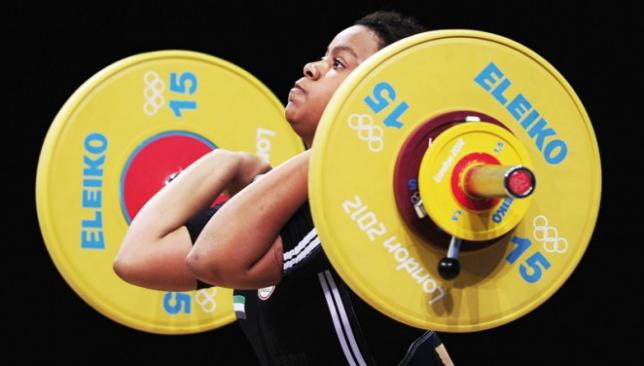
After 12 days of competition at the London 2012 Olympics, the Arab world has collectively gathered nine Olympic medals, including one single gold.
While that’s already more than the seven Arab medals won in Beijing four years ago, it is still a small tally coming from 22 different Arab states with a total population that amounts to almost 350 million.
Heavyweights like China and the US have passed the 70-medal mark already and a European nation such as the Netherlands has produced 14 medals so far.
So while those nine medals won by Arabs are praise-worthy, they are also a reason for us to take a closer look as to why the Arab countries are failing.
When it comes to the Olympics, individual sports take centre stage and provide much more medal opportunities. Across the Arab world, the support and attention given to individual sports is almost negligible compared to the attention given to team sports like football.
A sport like weightlifting provides no less than 45 medals at the Games, while football provides only six. The same goes for all the combat sports. Still, though, Arab nations invest more in football and ignore the individual events.
There is also a lack of structure when it comes to preparing for the Olympics. Other countries have four-year-plans, while our athletes get last-minute calls to boot camps a month before the event starts.
UAE weightlifter Khadija Mohammed cited difficulties in her training camp in Turkey before the Olympics, saying it was not properly planned and was way too short.
Egyptian marathon swimmer Mazen Aziz was contacted by the Egyptian Swimming Federation after he had managed to qualify on his own with no support.
Sheikh Ahmed bin Mohammed bin Hasher, the UAE’s only Olympic medallist, had complained he was not officially hired by the UAE NOC to coach the shooters going to the Games before an agreement was made just six weeks from kick off.
Through the interviews I’ve done with sports officials in the region in the lead-up to the London Games I’ve realised that our federations start looking for champions a few months before the Olympics rather than putting years of work into creating them. Our champions are mostly a result of their own efforts rather than a product of a successful government program or federation plan.
The lack of funding to individual sports often leads to the lack of high-quality coaches in the region. Poor coaching has led Arab athletes to seek expertise abroad as was the case of Aziz, who left Egypt when his coach was unreasonably fired by the Federation.
Oussama El Mellouli, the most successful Arab swimmer can attribute his gold in Beijing and bronze in London to 10 years of training at the University of Southern California.
Omar Behroozian, the UAE’s top tennis player, says there is a lack of interest from Emiratis to get their children involved in individual sports to begin with. He says: “How can you create champions when you don’t even have people to compete against in your own country?”
The lack of media interest is also a problem. These athletes are rarely addressed in the media all year round but suddenly they are under the spotlight at the Games and many of them are not prepared for that kind of pressure. Egyptian weightlifter Nahla Ramadan is a perfect example. She was tipped for a gold medal in Beijing but she crumbled under the pressure of expectation that was inflicted by the media and she couldn’t deliver.
That’s not to say there aren’t Arab success stories. The Saudi Arabian Equestrian Federation are a great example. They invested millions in the best horses and their riders received the best training, which saw them qualify to the Games as a team. They won the bronze in the team jumping and veteran Kamal Bahamdan just missed out on a bronze in the individual jumping.
Qatar’s Mutaz Barshim is also another home-grown success story. The high jumper trains at the state-of-the-art Aspire Academy in Doha and won bronze in London.
It is not impossible for the region to have more Olympic champions but years of planning, proper coaching, sports awareness, and funding are all essential and it needs to start years ahead of the Games, not six months before the event.
Give golden Makhloufi a break
In a bizarre series of events, Algeria’s Taoufik Makhloufi went from being disqualified from the Olympics to winning the 1500m gold.
The 24-year-old, who was initially disqualified for not trying hard enough in the 800m heats the previous day, was reinstated after a medical official from the Olympic Games Organising Committee provided evidence he was having knee trouble.
A day later he was celebrating the Arab world’s first gold of the fortnight. Some news outlets have met Makhloufi’s victory with disdain claiming he quit the 800m only because he missed the withdrawal deadline and by stopping some 150m into the race, he had taken the place of someone who would’ve more deserved the spot more.
While I do not condone someone intentionally tanking a race, the incident in the 800m does not take away from his massive achievement in winning the 1500m. Makhloufi has been training relentlessly for the Olympics and hasn’t seen his family in seven months because of his intensive schedule.
The media has also insinuated that he might have doped because he has managed to shave 2.5s off his timings this year. But he was reinstated by officials whose jobs are to address these matters, and if he has not failed a doping test, then there is no reason not to celebrate Makhloufi’s win.
* For breaking news, follow us on @Sport_360 or find us on Facebook.